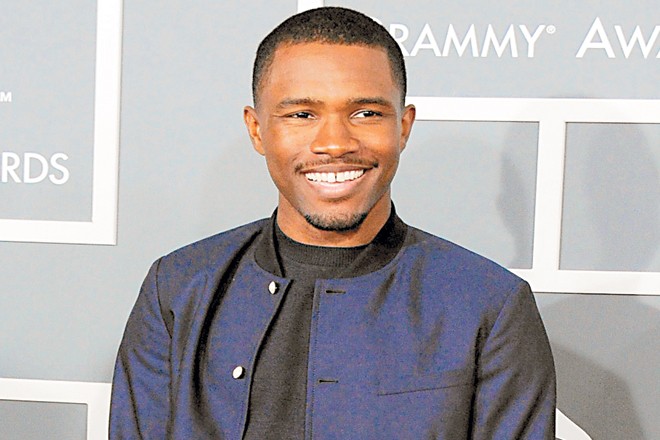
A look at R&B singer’s long-awaited second album

album review
Even before Frank Ocean fell quiet for the better part of four years, leaving a legion of fans to wonder when -- if? -- he’d ever muster a follow-up to his stunning 2012 debut, Channel Orange, the New Orleans-born pop savant was one of music’s most elusive figures. He made his name, after all, by dodging tidy categorization, confounding expectation and disobeying prevailing rules of genre. So it’s only fitting that the roll-out for his new album, upon us at last, unfolded as a series of riddles, unpredictable detours and winks.
It began in earnest in early August, after a string of blown deadlines and teasingly cryptic Tumblr posts: Ocean’s site crackled to life with a bare-bones video stream capturing him in a workshop, wordlessly and methodically constructing what gradually revealed itself as a staircase. That feed gave way to Endless, a short film posted online in which dreamlike half-songs soundtracked footage cut together from the workshop sessions. The link between music and visuals was impressionistic at best, but the subtext was clear: Ocean is a craftsman, and craftsmanship requires patience.
A day later, pop-up stores opened across the country, stocked with copies of Ocean’s Boys Don’t Cry, a glossy zine full of poems, photos of hot cars and hot boys and, affixed to one of its pages, a CD containing an album called Blonde.
The title was stylized in accompanying art as the masculine blond -- a grammatical tweak that gave the LP, intriguingly, two genders at once. Apple Music, meanwhile, unveiled a different Blonde, its tracklist featuring slight modifications. If all these twists and turns left observers feeling dizzy, well, isn’t that exactly how Ocean wanted it?
On Blonde, dizziness is a common sensation. The album is by turns oblique, smolderingly direct, forlorn, funny, dissonant and gorgeous: a vertiginous marvel of digital-age psychedelic pop.
It’s a trippy album, and whereas the lines about lovers point Ocean outward, there are many lines about drugs, leading him deep into his own skull. The music is sparer than it was on Channel Orange -- more mature, jammed less feverishly with ideas -- but adventurous nonetheless. Minimalist rock guitar and simple electric keyboard work drive numerous songs; twitchy rhythms and bizarre vocal effects creep in from the edges.
Ocean, who has sung hooks for Beyoncé, Jay Z and Kanye West, has long chafed at being designated an R&B artist; here he quotes from Elliott Smith; interpolates the Beatles and Burt Bacharach; nods to Bowie and Brian Eno in the acknowledgments (the list, included in Boys Don’t Cry, also includes Rick Rubin, James Blake and Gang of Four); and enlists a cameo from gospel stalwart Kim Burrell. Ocean works in the black-American pop-music vernacular, but this is an R&B album in only the most elastic and expansive sense of the term. On Ocean’s debut he imagined the lives of sordid characters: crack addicts, suicidal trust-funders, a stripper who may have been Cleopatra reincarnated. There’s something radical about that, and it affirms Ocean’s greatest strength: He refuses to be pinned down. -Courtesy: RollingStone.com